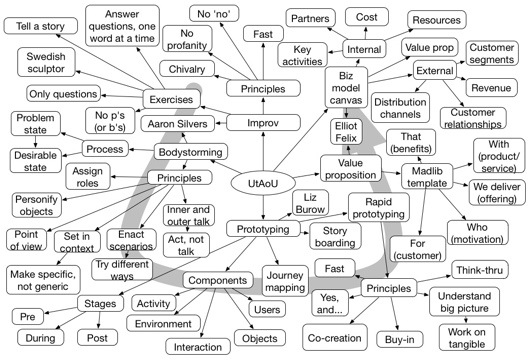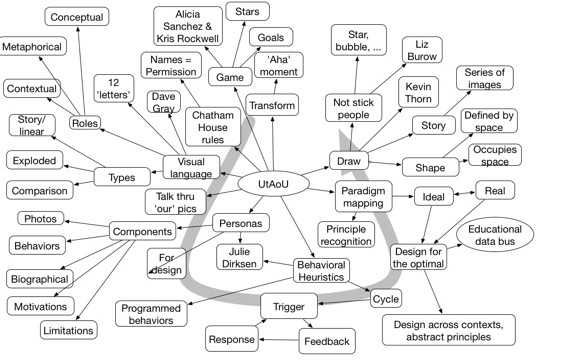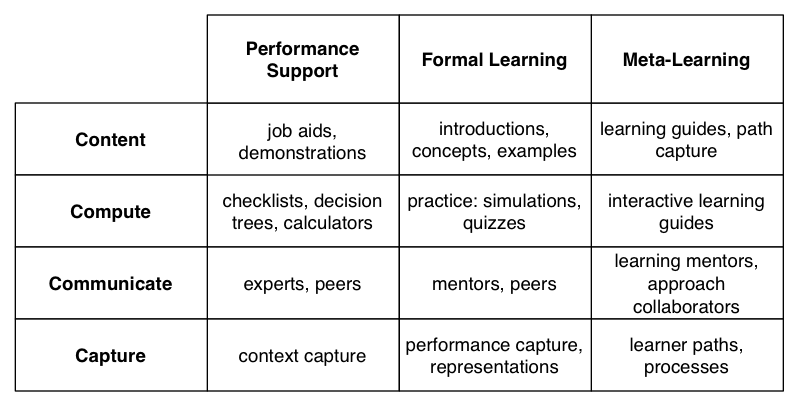A recent phenomena is the MOOC, Massively Open Online Courses. I see two major manifestations: the type I have participated in briefly (mea culpa) as run by George Siemens, Stephen Downes, and co-conspirators, and the type being run by places like Stanford. Each share running large numbers of students, and laudable goals. Each also has flaws, in my mind, which illustrate some issues about education.
The Stanford model, as I understand it (and I haven’t taken one), features a rigorous curriculum of content and assessments, in technical fields like AI and programming. The goal is to ensure a high quality learning experience to anyone with sufficient technical ability and access to the Internet. Currently, the experience does support a discussion board, but otherwise the experience is, effectively, solo.
The connectivist MOOCs, on the other hand, are highly social. The learning comes from content presented by a lecturer, and then dialog via social media, where the contributions of the participants are shared. Assessment comes from participation and reflection, without explicit contextualized practice.
The downside of the latter is just that, with little direction, the courses really require effective self-learners. These courses assume that through the process, learners will develop learning skills, and the philosophical underpinning is that learning is about making the connections oneself. As was pointed out by Lisa Chamberlin and Tracy Parish in an article, this can be problematic. As of yet, I don’t think that effective self-learning skills is a safe assumption (and we do need to remedy).
The problem with the former is that learners are largely dependent on the instructors, and will end up with that understanding, that learners aren’t seeing how other learners conceptualize the information and consequently developing a richer understanding. You have to have really high quality materials, and highly targeted assessments. The success will live and die on the quality of the assessments, until the social aspect is engaged.
I was recently chided that the learning theories I subscribe to are somewhat dated, and guilty as charged; my grounding has taken a small hit by my not being solidly in the academic community of late. On the other hand, I have yet to see a theory that is as usefully integrative of cognitive and social learning theory as Cognitive Apprenticeship (and willing to be wrong), so I will continue to use (my somewhat adulterated version of) it until I am otherwise informed.
From the Cognitive Apprenticeship perspective, learners need motivating and meaningful tasks around which to organize their collective learning. I reckon more social interaction will be wrapped around the Stanford environment, and that either I’ve not experienced the formal version of the connectivist MOOCs, or learners will be expected to take on the responsibility to make it meaningful but will be scaffolded in that (if not already).
The upshot is that these are valuable initiatives from both pragmatic and principled perspectives, deepening our understanding while broadening educational reach. I look forward to seeing further developments.



